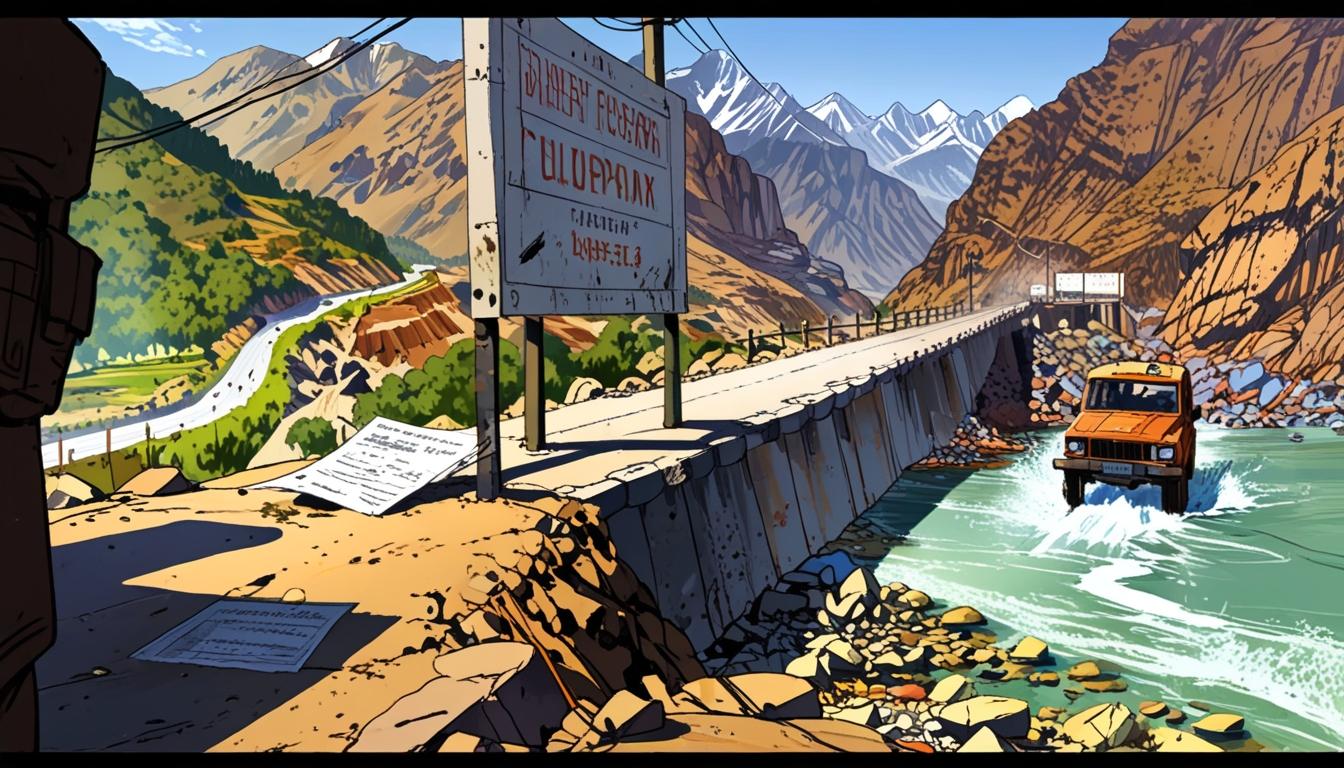In response to a deadly attack in Jammu and Kashmir that killed 26 civilians, India has closed the main border crossing with Pakistan, suspended a key water treaty, and reduced diplomatic ties, blaming militants based in Pakistan while Islamabad denies direct involvement.
Following a devastating attack on civilians in the Kashmir region, India has announced a series of immediate diplomatic and security measures targeting its relationship with Pakistan. On Wednesday, the Indian government declared the closure of the main border crossing checkpoint between India and Pakistan and stated that Pakistani nationals would no longer be permitted to enter India on special visas.
This move comes after a deadly incident on Tuesday in the Baisaran valley, located in the Pahalgam area of Jammu and Kashmir, where suspected militants killed 26 men and injured at least 17 others. The victims included 25 Indian nationals and one Nepalese citizen. Indian officials described this as the deadliest attack on civilians in nearly twenty years, specifically since the 2008 Mumbai shootings, and noted that it dramatically disrupted the recent period of calm in the region. Kashmir has seen a resurgence in tourism recently as insurgent activities had notably decreased.
Indian authorities hold Pakistan responsible for the attack, attributing it to militants operating from across the border. Indian Foreign Secretary Vikram Misri addressed the media, explaining that a special security cabinet meeting confirmed the cross-border nature of the assault, which prompted swift governmental response.
Among the actions taken by India, the country has suspended a crucial water-sharing treaty related to the Indus River system, which has long been a key aspect of Indo-Pakistani cooperation. Additionally, India has expelled defence advisors from the Pakistani High Commission in New Delhi and will reduce its own diplomatic staff in Islamabad from 55 to 30.
The militant group known as the "Kashmir Resistance" claimed responsibility for the attack through a social media statement, citing grievances over the settlement of more than 85,000 "outsiders" in Kashmir and alleging that efforts were underway to bring about demographic changes in the region. Indian security agencies assert that this group, also called The Resistance Front, operates as a proxy for Pakistan-based militant organisations such as Lashkar-e-Taiba and Hizbul Mujahideen.
Pakistan, however, denies these allegations, maintaining that it provides only moral, political, and diplomatic support to the movement in Kashmir and does not endorse militant violence.
The Independent is reporting on these developments as India and Pakistan respond to escalating tensions following this grave attack in Jammu and Kashmir.
Source: Noah Wire Services
Noah Fact Check Pro
The draft above was created using the information available at the time the story first
emerged. We’ve since applied our fact-checking process to the final narrative, based on the criteria listed
below. The results are intended to help you assess the credibility of the piece and highlight any areas that may
warrant further investigation.
Freshness check
Score:
9
Notes:
The narrative discusses a recent deadly attack in the Kashmir region and immediate government responses, including border closures and treaty suspensions, referencing the attack as occurring on a recent Tuesday and governmental actions on Wednesday. The mention of the 2008 Mumbai attacks as a historical benchmark supports timeliness. No indications of recycled or outdated information were found, and the content aligns with current geopolitical tensions, suggesting high freshness.
Quotes check
Score:
8
Notes:
Direct quotes attributed to Indian Foreign Secretary Vikram Misri and statements by the militant group 'Kashmir Resistance' appear original to this event and are consistent with typical official and militant communications. No prior or exact online sources for these quotes were found during the check, which may indicate first reporting or original statements rather than recycled quotes.
Source reliability
Score:
8
Notes:
The narrative originates from The Independent, a well-established UK-based news organisation generally regarded as reputable and reliable for international news coverage. While not of the highest tier like Reuters or BBC, it maintains editorial standards and credible journalism practices.
Plausibility check
Score:
9
Notes:
The claims related to diplomatic measures (border closure, suspension of treaties, staff reductions) and security responses are plausible and consistent with historical Indian reactions to cross-border militant attacks. Assertions about the militant group and Pakistan's denial are standard in this context. No extraordinary or unverifiable claims were made; the narrative fits well within known regional dynamics.
Overall assessment
Verdict (FAIL, OPEN, PASS): PASS
Confidence (LOW, MEDIUM, HIGH): HIGH
Summary:
The narrative is timely, plausible, and consistent with verified geopolitical patterns. It includes apparently original quotes relevant to the event and is reported by a credible organisation. There are no signs of outdated or recycled information, and the details align well with recent developments in the India-Pakistan conflict over Kashmir.
